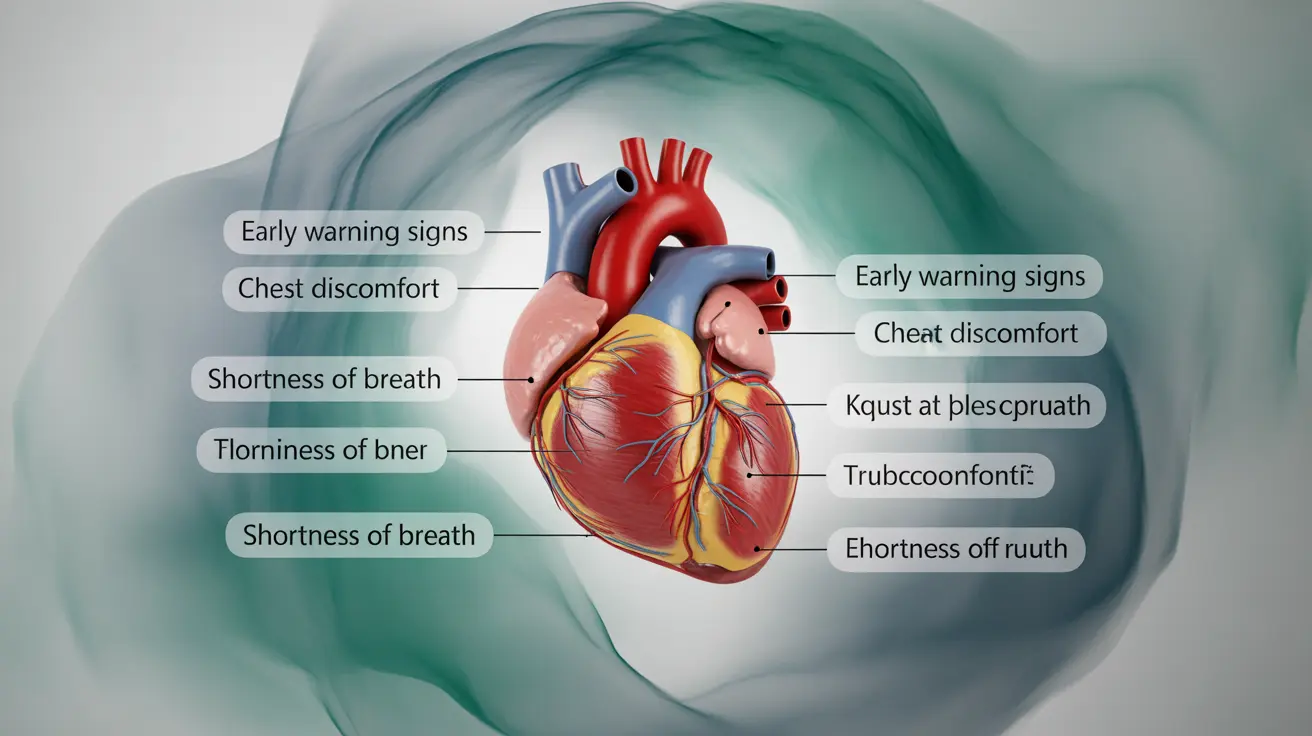Recognizing the early warning signs of a heart attack can be life-saving. While heart attacks may seem sudden, many people experience warning symptoms in the weeks leading up to the event. Understanding these signs and taking prompt action can significantly improve outcomes and potentially prevent a severe cardiac event.
This comprehensive guide explores the crucial warning signs that may appear up to a month before a heart attack, helping you identify when to seek medical attention and potentially save your life or the life of a loved one.
Understanding Early Warning Signs and Their Importance
Early detection of heart attack symptoms is crucial for preventing severe cardiac events. These warning signs often appear gradually and may be subtle, making them easy to dismiss or attribute to less serious conditions. However, recognizing and acting on these symptoms can provide valuable time for medical intervention.
Common Early Warning Signs
Unusual Fatigue and Sleep Disturbances
Unexplained fatigue and changes in sleep patterns are often overlooked but significant warning signs. You might experience overwhelming tiredness that isn't relieved by rest, or find yourself unusually exhausted after routine activities. Sleep problems, including insomnia or excessive sleepiness, can also indicate impending heart issues.
Chest Discomfort and Pain
While severe chest pain is a well-known heart attack symptom, the warning signs can be more subtle. You might experience intermittent chest discomfort, pressure, or a feeling of fullness. These sensations may come and go over several weeks, often being dismissed as indigestion or muscle strain.
Shortness of Breath
Difficulty breathing or feeling winded during normal activities can signal reduced heart function. This symptom may worsen gradually over weeks, making everyday tasks increasingly challenging. Pay particular attention if breathlessness occurs during activities that previously caused no issues.
Digestive Issues and Nausea
Unexplained nausea, indigestion, or gastrointestinal discomfort can be early warning signs of heart problems. These symptoms might persist or recur over several weeks, often accompanied by a loss of appetite or unexplained weight changes.
Gender Differences in Heart Attack Symptoms
Women often experience different or more subtle symptoms than men in the weeks before a heart attack. While men typically report classic chest pain, women may experience more varied symptoms, including:
- Unusual fatigue
- Neck, jaw, or back pain
- Nausea and vomiting
- Anxiety or feeling of impending doom
- Dizziness or lightheadedness
When to Seek Medical Attention
If you experience any combination of these warning signs, particularly if they persist or worsen over time, don't wait to seek medical attention. Early intervention can prevent a full-blown heart attack and potentially save your life.
Frequently Asked Questions
What are the common signs of a heart attack that can appear a month before the event?
Common signs include unusual fatigue, chest discomfort, shortness of breath, sleep disturbances, digestive issues, and unexplained anxiety. These symptoms may come and go but typically persist or worsen over time.
How can unusual fatigue and sleep problems indicate an impending heart attack?
Unusual fatigue and sleep problems can indicate reduced heart function and decreased oxygen flow. When the heart struggles to pump efficiently, it can lead to persistent tiredness and disrupted sleep patterns, even during regular daily activities.
Why is shortness of breath an important early warning sign of a heart attack?
Shortness of breath indicates that your heart may not be pumping efficiently enough to meet your body's oxygen needs. This symptom often appears weeks before a heart attack and may worsen during physical activity or emotional stress.
What should I do if I experience chest discomfort or palpitations weeks before a heart attack?
If you experience chest discomfort or palpitations, seek immediate medical attention, especially if symptoms persist or worsen. Don't wait to see if they resolve on their own, as early intervention can prevent a serious cardiac event.
How do heart attack symptoms differ between men and women in the month leading up to the event?
Women often experience more subtle and varied symptoms than men. While men typically report classic chest pain, women may experience fatigue, nausea, back or jaw pain, and anxiety. Women's symptoms are often dismissed as stress or other conditions, making early recognition crucial.




